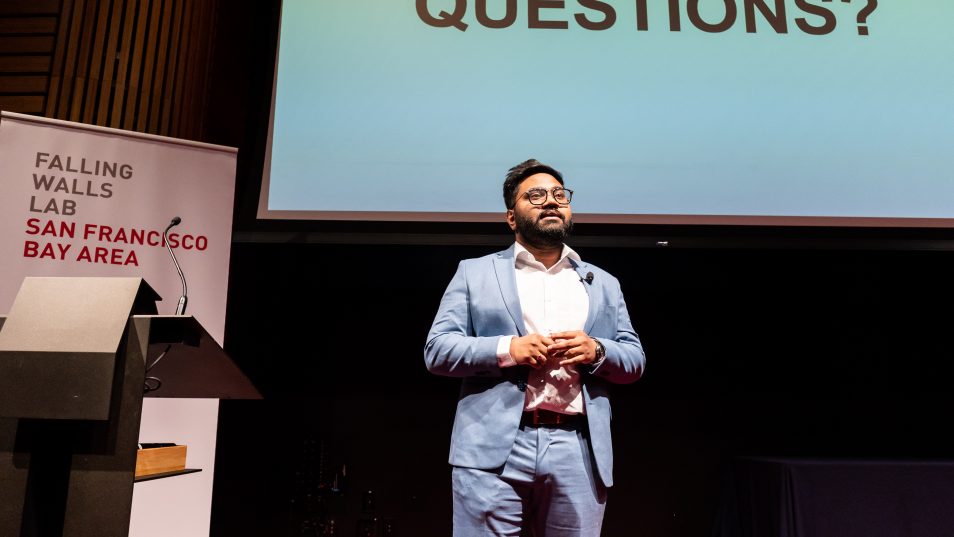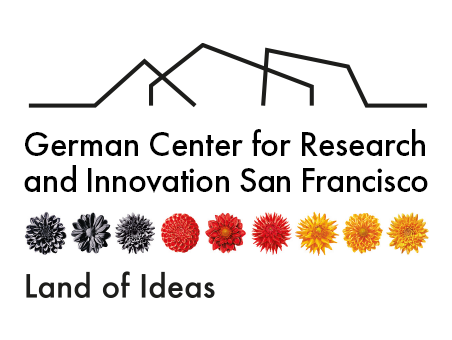Six Questions for Dr. Vishnu Sunil

We had the pleasure of interviewing Vishnu Sunil, Ph.D., one of our Falling Walls Lab 2022 winners. Dr. Sunil is a scientist and bioentrepreneur developing life-saving technologies and ways to deliver these innovations with an aim to democratize healthcare. Dr. Sunil has a PhD in Chemical and Biomolecular Engineering from the National University of Singapore. He has been awarded several fellowships and grants for his work in the field of biomaterials. Outside of the lab, Dr. Sunil works with regulatory agencies, health ministries, and MedTech companies across the world in shaping and influencing policymaking around equitable access to new technologies and medicines.
Tell us a little bit about yourself, your educational background, and how you became interested your research project on reducing pre-hospital bleeding.
I have a PhD in Chemical and Biomolecular Engineering from the National University of Singapore and currently work as an Innovation Fellow at Novartis. I am an aspiring bioentrepreneur looking to develop innovative medical technologies and ways to deliver these technologies to democratize healthcare by enabling equitable access around the world.
How has your experience been at Novartis and here in the San Francisco Bay Area?
My role at Novartis is my first job out of college, so it has definitely been exciting, and I am fortunate to work at place where I have the opportunity to impact thousands of patients’ lives every day. I moved to the Bay Area to tap into its vibrant startup ecosystem, to network and make connections to ensure I have the mentors and resources I need to translate my research from bench to bedside.
Tell us about the new prototype bandage you created. How is it special? How do you hope to channel your research into commercial application?
We have developed a hemostatic material that leverages on nanostructural engineering to enable rapid clotting, significant reduction in blood loss and risk of secondary bleeding along with the prevention of infection. This material can be flexibly coated on gauzes, injectable pellets and wound balloons to address different bleeding situations. We have filed a patent for this technology and are currently working with paramedics to meet user needs and do further clinical evidence generation.
What was your experience like both at the local Falling Walls Lab in Berkeley and in the Berlin Science Week?
It was a great experience attending the Falling Walls lab locally and the Berlin Science week as it not only introduced to many highly capable researchers and scientists but also gave me an insight into the startup environment in Germany and the opportunities it provides to build deep tech companies.
What were the highlights of the Berlin Science Week and what did you take back from that experience? Tell us about the grant you received!
The main highlights of the Berlin Science Week were:
The Falling Walls Science Summit – I have not meet and closely interacted with so many people from different countries in any other conference. I got to know about the Falling Walls Venture program during my time there and has inspired to apply for the Venture program this year!!!
Innovation Week – I got to interact with several startups at TU Berlin and understand the funding mechanisms for startups in Germany. Germany has a huge scientific talent pool along with government funding which makes it an amazing place to start a company.
Why would you recommend young researchers to apply for the Falling Walls Lab?
I think it is a great avenue to present or “pitch” your idea to a mass audience which is an opportunity that we do not get often. From scientists to investors, from feedback to funding, it could be a one-stop shop for everything you need to succeed in taking your idea to the next stage. Furthermore, while condensing all the extremely complicated technology to a 3-minute speech will help refine your key value proposition and reduce the scientific jargon you use to communicate your idea to a wider audience.
